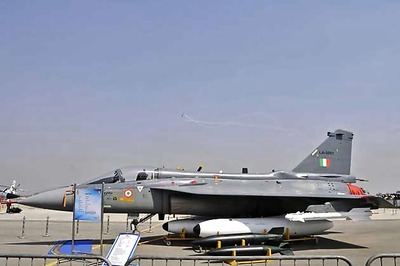
views
United Nations: Reiterating its "steadfast commitment" to international cooperation in the fight against terrorism, India has warned against diluting or weakening the global legal regime to combat it.
"There is, in fact continuing urgency to strengthen and make it more comprehensive and effective," India said in a statement explaining its support for two UN Security Council resolutions to reform the sanctions on the Taliban and al Qaeda.
Unanimously adopted on Friday, Security Council resolutions 1988 and 1989 created two separate sanctions regimes, one for al Qaeda and another for the Taliban, a move aimed at supporting the Afghan government's reconciliation efforts. So far, there has only been one sanctions regime to deal with both groups, established under Security Council Resolution 1267 in 1999.
"We have joined the consensus in favour of the resolutions adopted today to convey an unequivocal and resolute message from this Council of its steadfast determination in countering terrorism," the Indian statement said.
"India fully supports an Afghan-led inclusive and transparent process of reconciliation, adhering to the redlines as enunciated by the Afghan Government in the London and Kabul communiques," it said.
India, the statement noted, had repeatedly expressed its concern in the Security Council that the functioning of the 1267 Sanctions Committee has been subject to political pulls and pressure.
"This is a scenario that we can ill-afford in our fight against terrorism," it said demanding that "The process of listings as well as de-listings needs to be guided by the same set of principles - fairness, credibility and transparency."
"Then only would it be ensured that the Sanctions Lists are really effective. We hope that as we move forward, we keep this critical requirement uppermost in our minds," the Indian statement said.
"The syndicate of terrorism, with intricate interconnections, comprising al Qaeda, elements of the Taliban, Lashkar-e-Toiba and other terrorist groups that operate from within and outside Afghan borders are among the biggest threats from terrorism world-wide," it noted.
"International cooperation and concerted action against terrorists and their sponsors, including the complete dismantling of terrorist safe havens, sanctuaries, training grounds and financial and ideological support structures are the critical imperatives to defeat this scourge," it said.


















Comments
0 comment